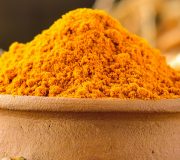About this Episode
There is a good amount of data available to help us understand the prevalence of anxiety and depression in the modern world, but naturopath and medical herbalist Berris Burgoyne stresses that these health conditions are more common than we might think. In this episode of the Medicinal Herbs podcast, Berris joins host Sara Le Brun-Blashka, MS, to discuss anxiety and depression, especially when it comes to her perspective as a clinician and herbalist.
How Prevalent is Anxiety and Depression?
The data shows that the prevalence of anxiety and depression has increased in the past few years. For example, data from the Centers for Disease Control and Prevention (CDC) from August 2020 to February 2021 show that the percentage of American adults with recent symptoms of anxiety or depressive disorders increased from 36.5% to 41.5% (01:30). Anxiety and depression seem particularly prevalent in the 18 to 29 age group; additionally, women are more often diagnosed with these conditions than men.
Patient Presentation
Berris points out that anxiety and depression are complex conditions; there is not a single cause at blame. In response, clinicians with a natural approach – like Berris – approach these cases first with a thorough case history, taking note of both verbal and non-verbal cues (05:13). Berris notes that anxiety and depression often overlap, usually with one condition dominating the other.
Causes and Contributing Factors
While there is no single factor causing cases of anxiety and depression, Berris highlights a few contributing factors that clinicians might consider in patients with these conditions (08:06). For example, chronic inflammation and issues with neuroplasticity may be contributing to anxiety and depression. Additionally, stress – especially chronic stress – is a likely contributor to anxiety and depression, especially considering how stress and excessive cortisol production can influence the HPA axis.
Chronic Stress & Change in the CNS
As a contributing factor to anxiety and depression, chronic stress is associated with changes in the central nervous system (CNS). This includes suppressing neuronal proliferation and synaptic plasticity – important components of how the brain communicates with the rest of the body (11:09). Additionally, anxiety and depression may be associated with weakening of important brain structures, such as the prefrontal cortex and hippocampus.
Addressing Anxiety and Depression with Medicinal Herbs
Managing the detrimental effects of chronic stress on the body – which often take the form of anxiety and depression – is typically a multi-faceted approach. Diet, exercise, sleep habits, and social support are all important lifestyle factors that influence stress. Medicinal herbs are also an important part of the response to anxiety and depression. In Berris’s experience, adaptogenic herbs – those that help us adapt physiologically and emotionally to stress – are vital to support patients dealing with chronic stress and its adverse effects (19:24).
Adaptogenic herbs to support stress
Adaptogenic herbs help us adapt physiologically and emotionally to stress:
Additional herbs for anxiety and depression
- St. John’s Wort
- Saffron
- Kava (anxiety in particular)
- Skullcap
- Passionflower
References
- Centers for Disease Control and Prevention. (2021, April 1). Symptoms of anxiety or depressive disorder and use of mental health care among adults during the COVID-19 pandemic – United States, August 2020–February 2021. Centers for Disease Control and Prevention. Retrieved March 16, 2022, from https://www.cdc.gov/mmwr/volumes/70/wr/mm7013e2.htm
- S. Department of Health and Human Services. (n.d.). Any anxiety disorder. National Institute of Mental Health. Retrieved March 16, 2022, from https://www.nimh.nih.gov/health/statistics/any-anxiety-disorder.shtml
- Centers for Disease Control and Prevention. (2022, March 4). Data and statistics on children’s Mental Health. Centers for Disease Control and Prevention. Retrieved March 16, 2022, from https://www.cdc.gov/childrensmentalhealth/data.html

















